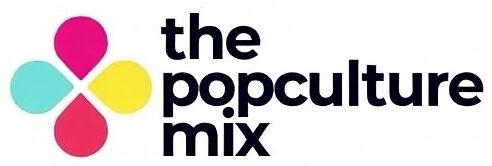A strong and well-maintained roof is essential for protecting your home from the elements and ensuring the safety of your family. One of the most effective ways to maintain a roof is through a professional Roof Inspection. Regular inspections help identify potential issues early, extend the lifespan of your roof, and prevent costly repairs in the future.
Understanding Roof Inspection
A Roof Inspection is a thorough evaluation of a roof’s condition conducted by a professional roofing contractor. The inspection assesses the structural integrity, roofing materials, drainage systems, and overall performance of the roof. Whether your roof is made of shingles, metal, tiles, or another material, a detailed inspection can reveal damage, wear, or weaknesses that may not be visible to the untrained eye.
Roof inspections are crucial for homeowners, property managers, and real estate investors. They ensure the roof is functioning correctly and help maintain property value while preventing unexpected expenses.
Importance of Roof Inspection
- Identify Early Damage
Weather, aging, and environmental factors can cause wear and tear on a roof over time. A Roof Inspection uncovers issues like leaks, missing shingles, damaged flashing, and other potential problems before they escalate into costly repairs. - Ensure Safety
A compromised roof can pose significant safety risks, including leaks, structural instability, and mold growth. Inspections ensure that the roof is structurally sound and safe for occupants. - Extend Roof Lifespan
Regular inspections and timely maintenance can significantly extend the life of your roof. By identifying and addressing minor issues early, homeowners can avoid premature roof replacement and save money in the long term. - Maintain Property Value
A well-maintained roof enhances the overall value of a property. During real estate transactions, a Roof Inspection report reassures buyers and can improve the resale value by demonstrating that the property is in excellent condition. - Prevent Costly Repairs
Emergency roof repairs are often expensive and disruptive. Routine inspections allow for proactive maintenance, helping homeowners avoid sudden, costly repairs and minimize damage caused by leaks or structural problems.
Key Components of a Roof Inspection
1. Roof Surface Evaluation
Inspectors examine shingles, tiles, or metal panels for signs of damage, wear, or decay. Missing or broken materials, curling edges, and granule loss are all indicators that repairs may be necessary.
2. Flashing and Seals
Flashing, gutters, and seals are inspected to ensure water does not penetrate critical areas. Damaged or improperly installed flashing can lead to leaks and structural damage over time.
3. Attic and Ventilation Assessment
Inspecting the attic is essential for detecting leaks, water damage, and ventilation issues. Proper airflow prevents moisture buildup, mold growth, and insulation damage.
4. Roof Structure and Support
Inspectors evaluate the roof’s underlying structure, including rafters, trusses, and supports. Structural issues can compromise safety and lead to costly repairs if left untreated.
5. Drainage Systems
Gutters, downspouts, and drainage channels are assessed to ensure water flows correctly away from the roof and foundation. Proper drainage prevents water accumulation, which can cause leaks and structural damage.
Benefits of Regular Roof Inspections
- Early Problem Detection: Identifies issues before they become major repairs.
- Cost Savings: Reduces the likelihood of emergency roof repairs and replacements.
- Enhanced Safety: Ensures the structural integrity of your roof and home.
- Extended Roof Lifespan: Prevents premature deterioration of roofing materials.
- Peace of Mind: Homeowners can feel confident that their roof is in good condition.
Conclusion
A professional Roof Inspection is an essential part of maintaining any property. It provides homeowners and property managers with a clear understanding of the roof’s condition, highlights potential issues, and ensures long-term safety and durability. By scheduling regular inspections, property owners can protect their investment, maintain a safe living environment, and avoid costly repairs. Regular roof inspections are not just a preventive measure—they are a smart investment in the longevity and value of your home.
